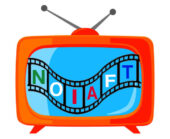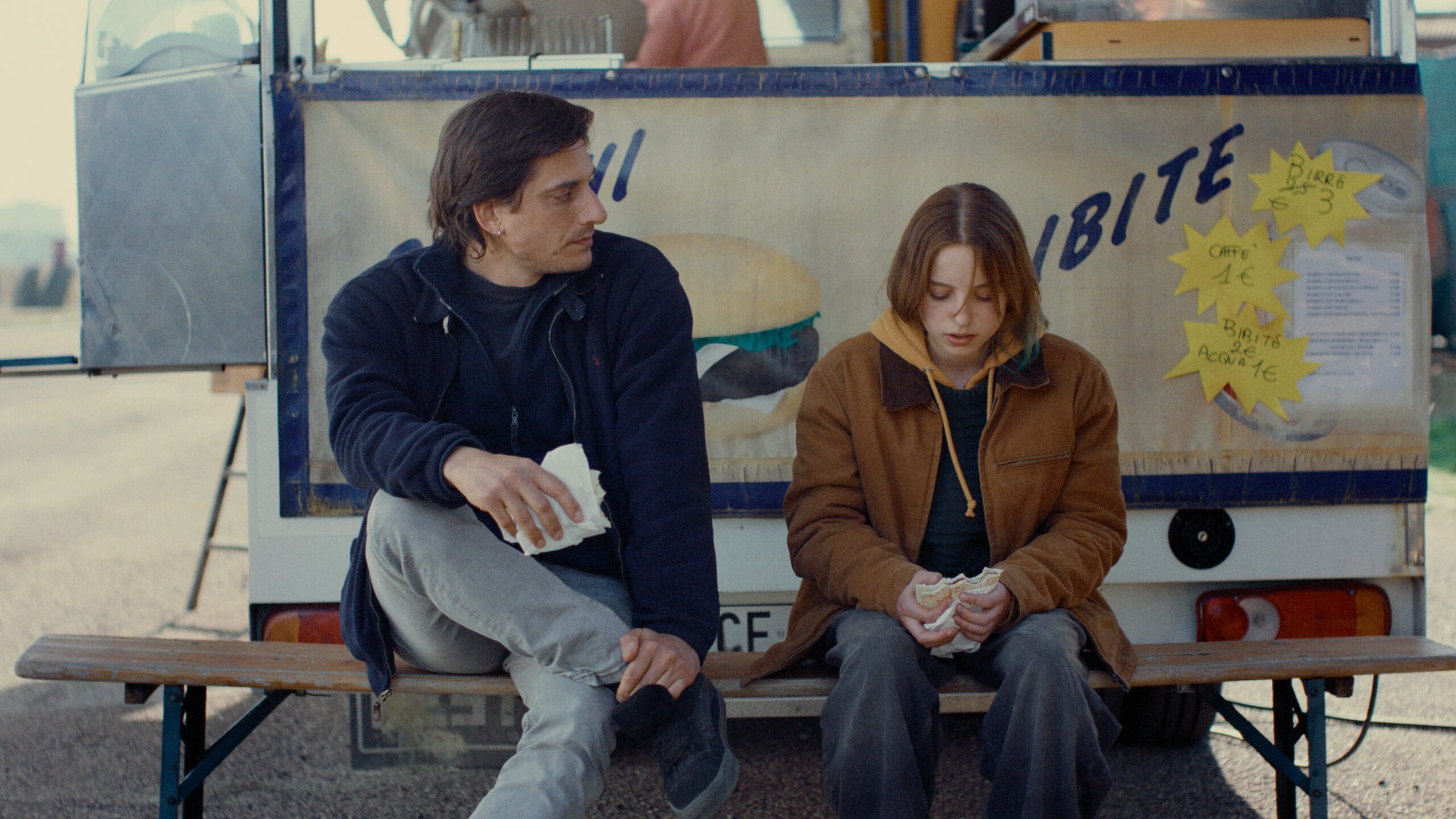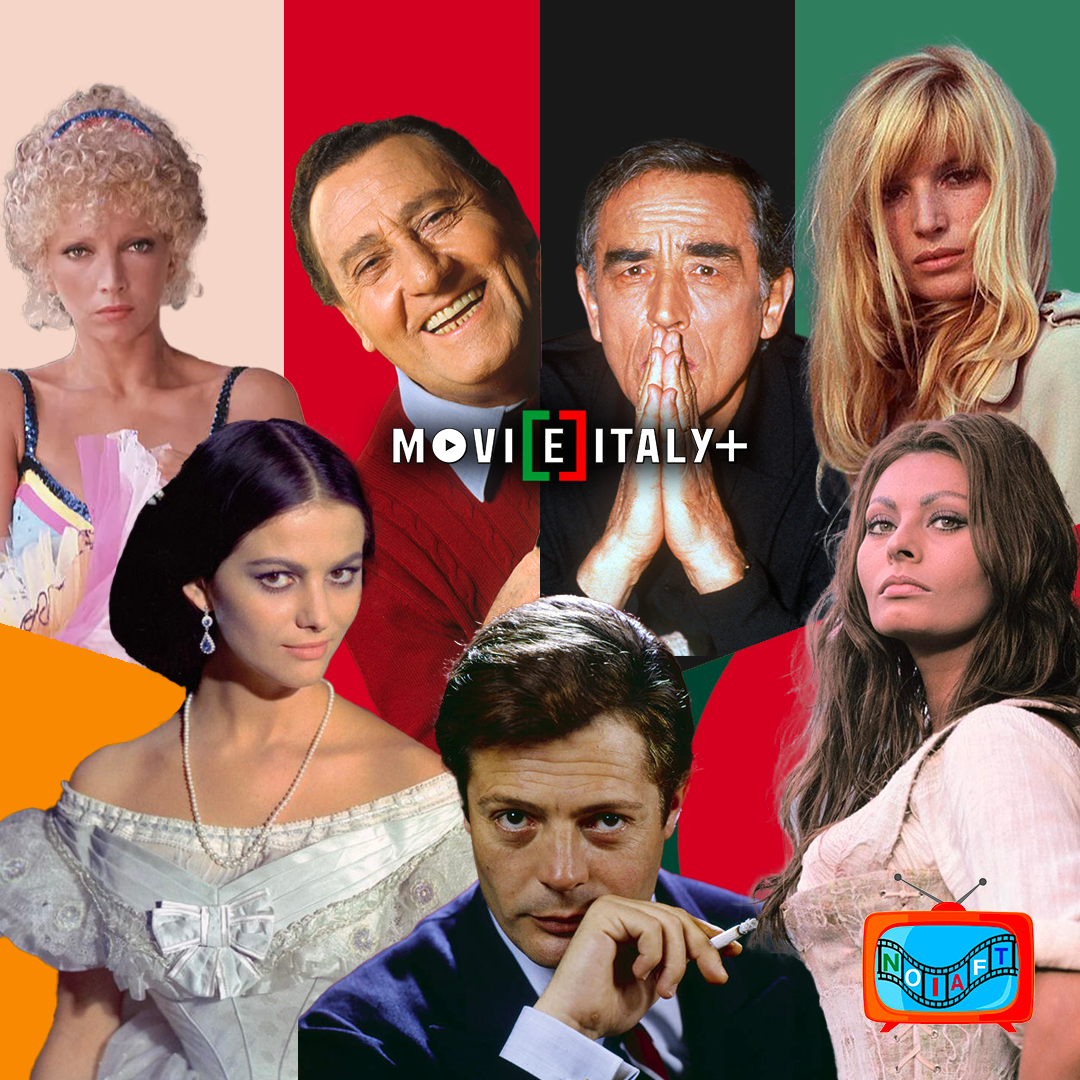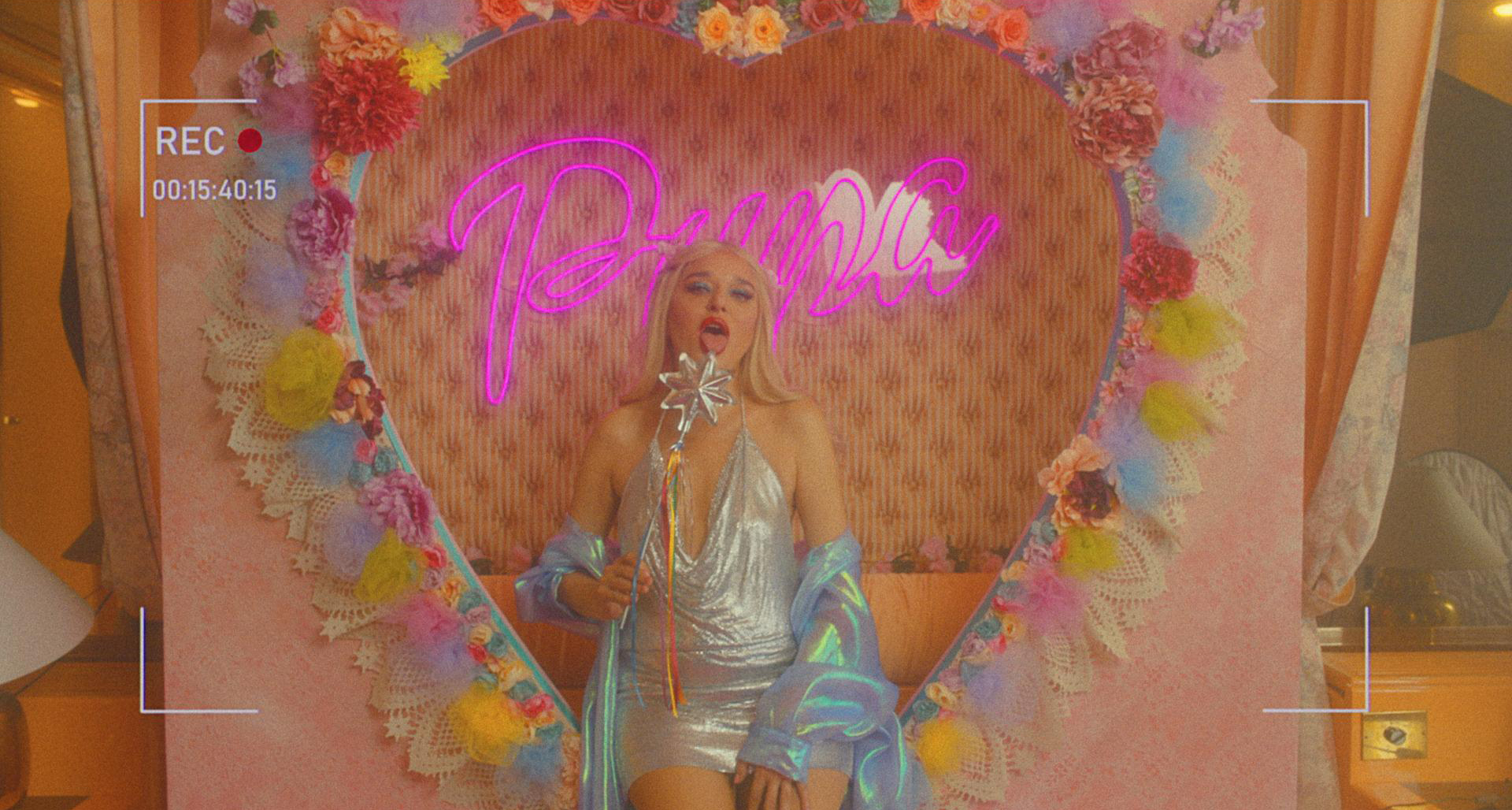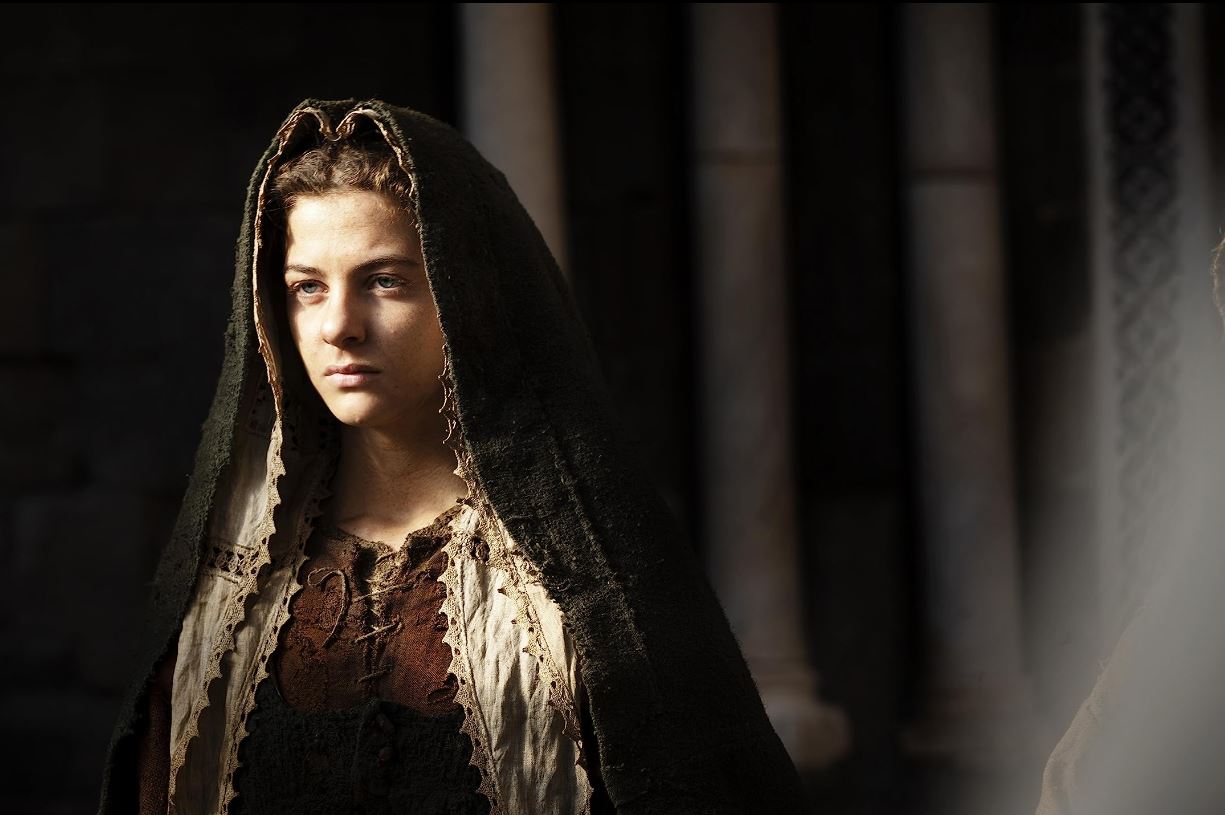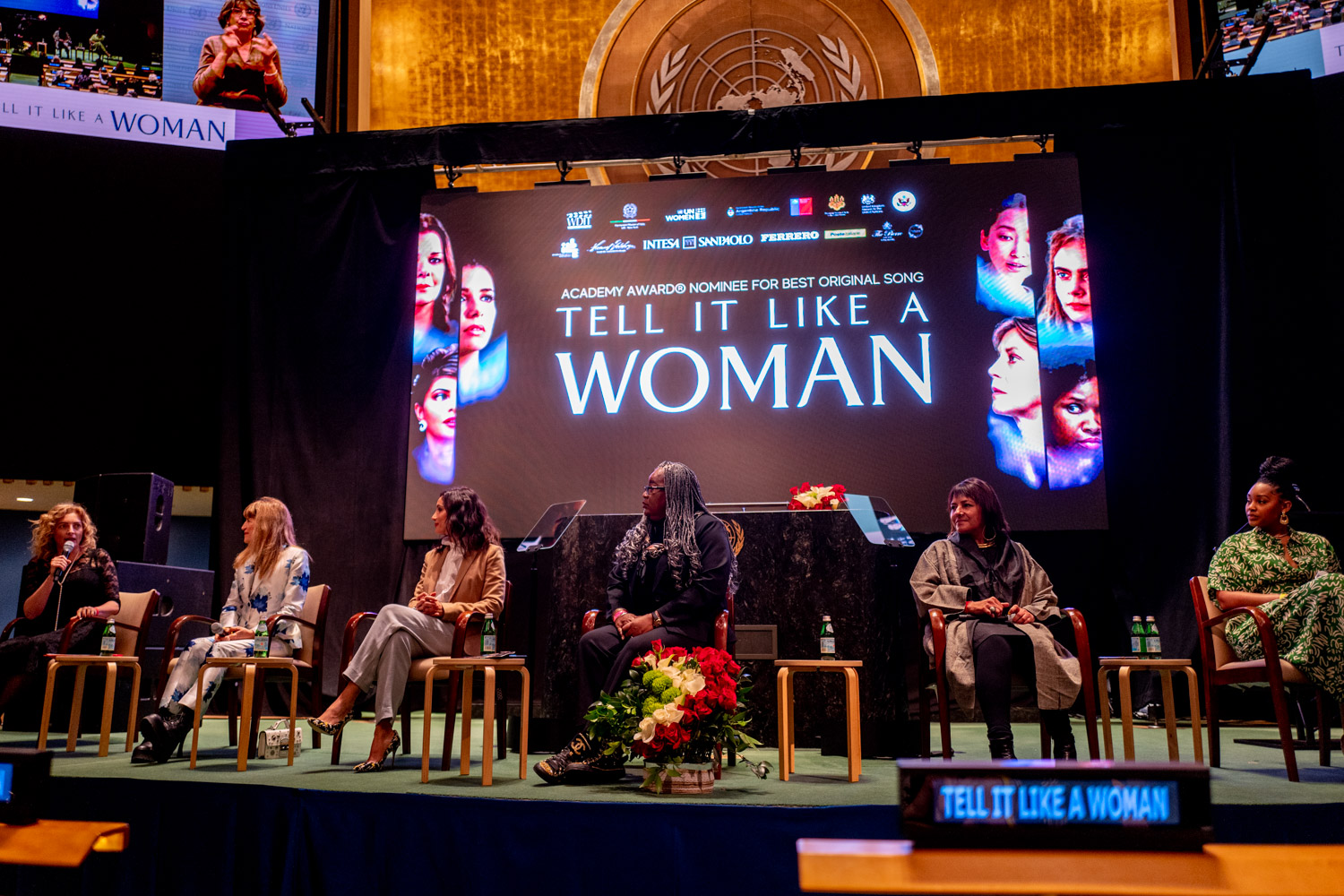Actress-turned-director Alissa Jung made her Open Roads: New Italian Cinema debut with the U.S. premiere of Paternal Leave, a thoughtful exploration of a father-daughter relationship set against the backdrop of Northern Italy. The film, which had its world premiere at the 75th Berlin International Film Festival on February 15, 2025, engages audiences with a quietly moving and at times unexpectedly funny story. It follows 15-year-old Leo (newcomer Juli Grabenhenrich), who leaves Germany in search of Paolo (Luca Marinelli), the father she’s never met. What unfolds is an encounter that’s as tender as it is illuminating.
On the occasion of the 24th edition of Open Roads, Jung spoke with NOIAFT’s founder/president, Taylor Taglianetti, about her transition to feature filmmaking.
I'm going to approach this as someone who also just recently made her first feature. A film is such an undertaking. It can destroy you, if you let it. I wonder, of all the films you could have made...why this movie?
Because I think I was aware that it is not just a three-month thing, but it’s a marathon. It’s really a long, long, long run. I wanted to choose at least a theme that I hoped would interest me for more than just a few months.
And I really felt that the parent-child relationship is one,…something regarding all of us, because we are all children. It’s a relationship we have from birth until our death somehow.
And two, I’m a daughter, I’m a sister, I’m a mother, and I’m a friend of people who are mothers or daughters or fathers, so it’s a relationship I talked a lot about, I explored a lot in my own experiences. I changed a lot of perspectives on. I just realized that it’s such a wonderful relationship, full of love often, but also, as well, a relationship which can really destroy you. One sentence from your parents can harm you so much more than the same sentence of anybody else in a room.
So true. It can be something that can change your whole life or that you think of your whole life. So true, well said.
I really wanted to explore this relationship, and then I chose this very extreme relationship, which is not my personal story, but it gave me the opportunity to have this really extreme arc of an absent father, to explore all these emotions which are underneath, which are somehow my own, but not in this arc, in other arcs of my life somehow.
Until now, I’m not tired of this relationship. Until now, I’m discovering, even now, when talking with journalists or with the audience, I discover new aspects. So I think I’ve chosen well.
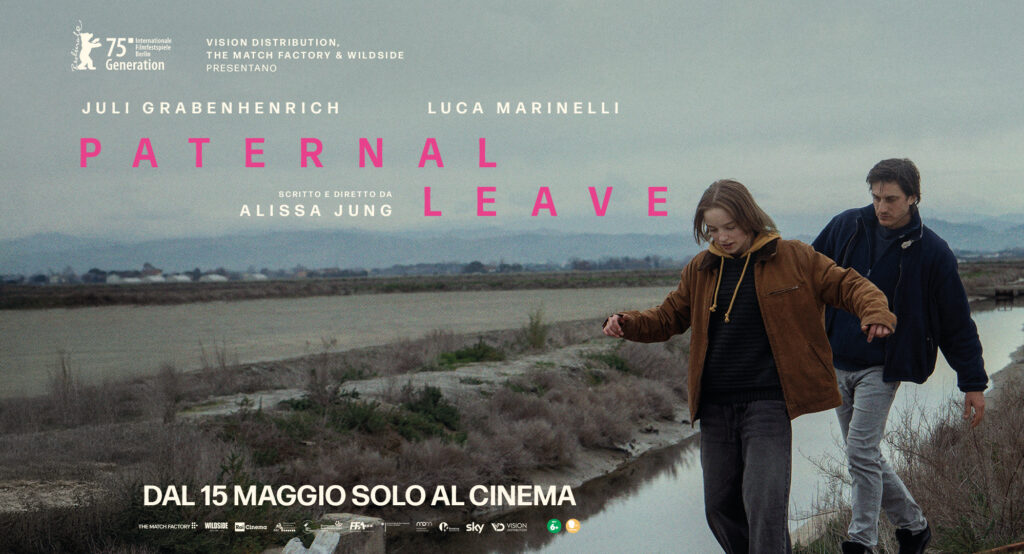
What did you learn about yourself in making this?
I did learn on the technical end, but about myself…that it’s important to take pauses, that it’s not possible to run a marathon if you’re not drinking water in between, no?
Doing a short is something different. You can just run, run, run, and then it’s done. Doing a feature, you have to watch out for yourself. You have to take your time to digest. I learned this, I think.
I learned a lot in exploring these emotions about myself, because I wondered as well why some themes are touching me so deeply because I grew up with a father. Why is it touching me so much?
Then, I understood more about it, and I understood … even now, a journalist brought up the whole patriarchal theme of the movie, which is very subtle. It’s just woven in.
I didn’t do it consciously. I didn’t think that now I do a movie about patriarchy, how it is harming all of us now. It was not my intention, but just trying to mirror our society, trying to mirror men in our society, and young women in our society. It happened. I learned as well about this.
It's so interesting you bring that up because I was going to ask you about that, particularly Italian men. If it was an intention to speak about men in general or Italian men. I know many Italian men, related to some, too, ha! So I have a very particular view of Italian men. I saw some characteristics of men in my life…the sympathy I have for them, for not being able to express or process their emotions as well as they might like. Or when they do get very emotional, it comes out so strong.
When I was writing the story, it was a coincidence that I wound up in Marina Romea, the location of the film, in autumn…and it was all closed. Suddenly, I could see the father there, barricading himself.
I was like, “He’s Italian, he lives here.” It was clear, okay, the character is Italian. It just came up.
Then, I realized that it gave me the opportunity because I’m German, but I live between Rome and Berlin, more or less. Yes, I have my point of view on certain things in Italian society and on certain things regarding the Italian man.
It gave me the opportunity to put it in somehow. Yeah, just mirroring. I didn’t want to judge. I just wanted to mirror so that we all can understand better. Because even as Paolo is behaving like an asshole sometimes, at least I can feel him so much and I’m suffering with him because, yeah, like you said, he has no means to explore in another way, so he has to … he gets angry like a child, because he never learned how to deal with emotions.
Also, I was reflecting with the audience the other day and thought that if Paolo would’ve had another picture of a dad, another image, which is not the patriarchal dad who’s nurturing the family and always strong, maybe he would’ve stayed because there would’ve been a lot of opportunity for him. But in not having any images, he said, “No, I’m no father because I’m weak. I cannot stay.
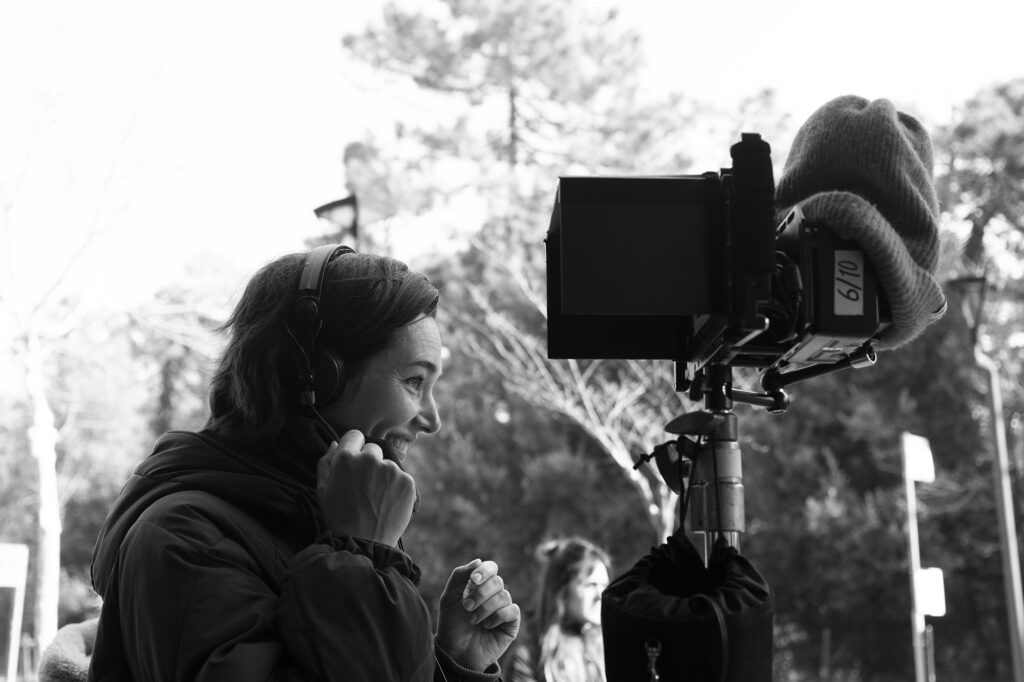
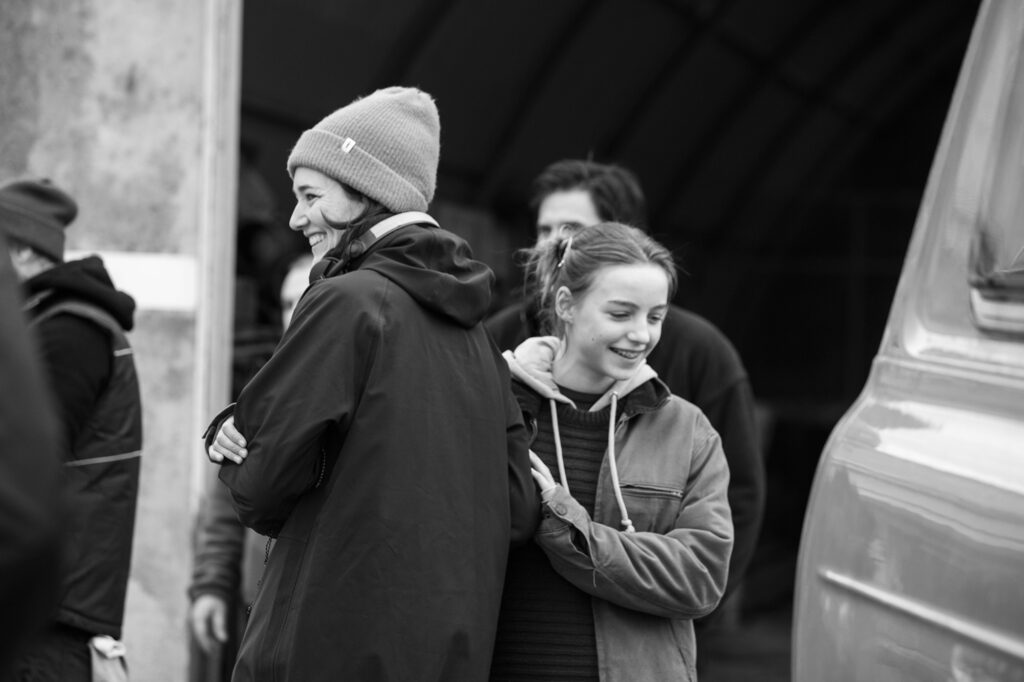
And because of that attitude, he doesn’t even attempt to try.
Right. I somehow blame our society as well for men who are behaving like Paolo because they’re just trained like this, somehow.
I think that’s what I like the most about this film though, is that you don’t judge them…you just show them as is because everyone can see a little bit of someone that they know and love in Paolo. Regardless of what he does, what he chooses to make of his life. There's the human quality present, where another director could have just made Paolo…just a…bad dude!
That was very important for me that he’s not just a black-and-white bad dude being an asshole. No, he’s a human being. He’s trying to be better. He’s really trying. He’s just trying the wrong way, but he’s trying.
Yeah, I think he's actually a pretty hopeful character. That's why I'm curious about the ending. To me, it was open-ended, but I did feel a sense of hope for these two people. That maybe if this would be their only encounter, it still gave me some sort of faith that they'll take their brief experience together to improve their lives as opposed to suffering more. Was that what you were trying to say?
Of course, even in me, there’s this big hope that the two of them get along somehow, but it’s not the most important thing, I think. The most important thing is that she can accept the situation and she can move on and grow, and that he, maybe, if he’s clever…he has a huge chance now because there was this young strong woman mirroring him, putting him down on a chair, saying, “That’s you, look at yourself.” If he’s smart enough emotionally, he really can grow now. He really has the chance now to change. We don’t know if he does, but I have hope for him as well.
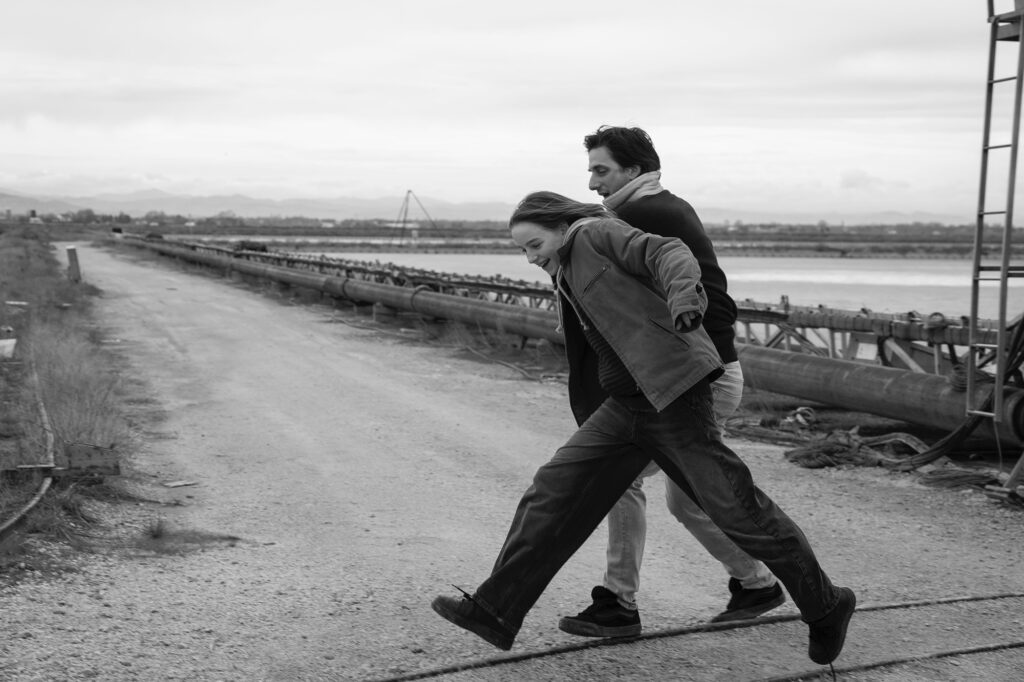
Yeah. Well, I think what's great about your lead actress is that she has anger, but it's anger with grace. That’s what I like the most about her. I felt like she was a role model for him.
It’s so nice that you’re saying this because I am mirroring a generation of young people I met in my life, in Berlin mostly. I really admire this. Yeah. They are so brave and honest and angry, but with grace somehow. Not with brutality, but with gentleness.
To be angry as a woman is not seen well in our society, no? It’s a thing which is like you’re hysterical if you’re angry, but to be able to be angry as a woman, but still be there and not lose yourself…I really wanted to show this somehow.
I think she's just undeniable. Another actress, another director could have made it just a kid that's really sad and reckless as a result, but she has her perfect defense. She's ready for every question that he could have for her.
She wants to be really strong!
It just seems kind of natural for her. I think she could be a lawyer in another life…or in the sequel. Kudos because that's hard to accomplish, especially, because of, like you said, how people perceive women. I think you gave her everything that a woman could want in watching that movie, a young woman in particular.
Thank you.
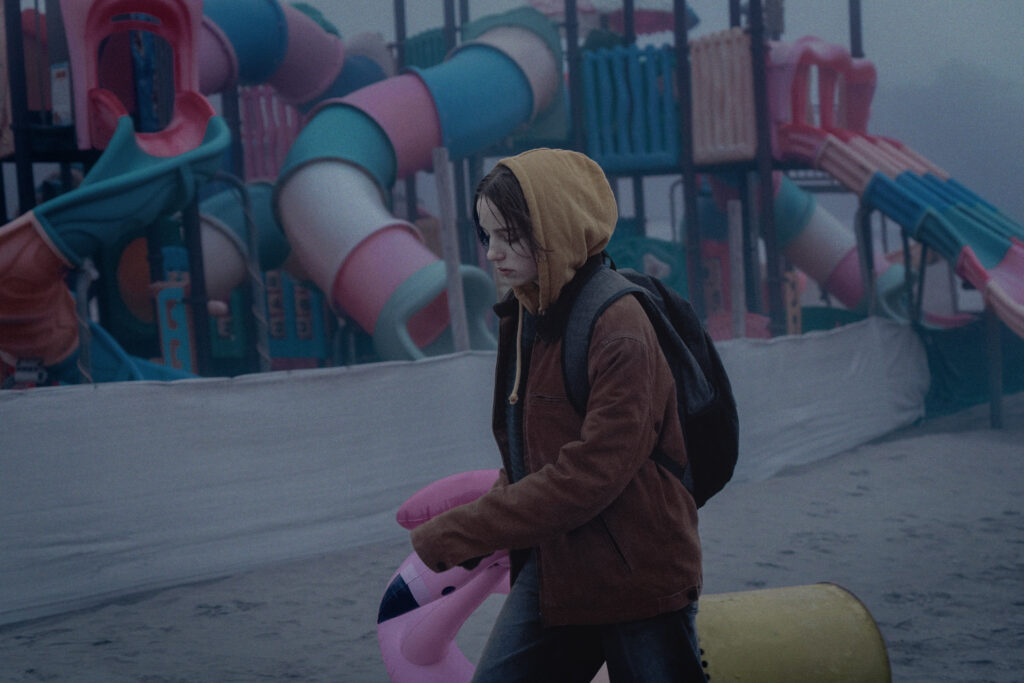
The color was really interesting. It's muted but she pops with that yellow jacket. She’s meant to be seen. Can you tell me a little bit about what you're going for there?
Yeah. It’s a co-working process. Of course, I described to the team the locations I had in my mind, which already had some color palette, no? Because it’s the ocean and the sky and the fog.
Then, we worked with Carolina Steinbrecher, the DOP, and Cristina Bartoletti, the production designer, and Daniela Tartari, who did costumes for the first time; she normally does hair. We worked a lot on this color palette and these foggy colors.
Then, with the costume, we wanted to have her have this yellow pop a bit out. He is often quite blue. Even if it seems like we found it all there, Cristina really built up the whole art design. It was all very well thought out.
It’s interesting because I find color to be one of the hardest things to communicate in some ways. When I was working on my documentary and doing a first pass at color, I remember telling my colorist that I wanted it to look cinematic, like a “movie” not a documentary. I took that word “cinematic” to mean the same thing to everybody...that he would just get what I meant. I had made a very happy, bright film but he made this documentary look like Saving Private Ryan, very green and muddy! We eventually found a language to communicate better but that experience made me think about what we take for granted when giving directions. Like you said, foggy…and that's not the word I would've thought of to describe your film, but it's the perfect word for what I'm seeing on screen. On the subject of communication, I think what's so interesting about their relationship is that it's also disconnected because they speak two different languages.
Yes!
Even if you're speaking the same language, sometimes you're speaking a different language, yeah? But obviously that adds to their dysfunction. Although this is a little bit different, I bring it up because it was memorable to me. I don't know if you've watched Emily in Paris. Obviously, it's very different, but there's a scene in that show where one of the characters says, "We would've been able to keep this relationship going if we both spoke French, I think you would've understood me better." How did you approach the cultural barriers and do you speak Italian? I know you’re German.
I do speak Italian. When I decided to tell this story, and when I decided, okay, he’s Italian, then it popped up in my mind, okay, then she’s German.
Because it gives me the opportunity to have this culture clash. More importantly, I make them even more strange. I made an extreme choice to put them even more apart and to take away the possibility that they can really talk elaborately in a beautiful way about their relationship. They just have their simple English because he’s a surfer. For Italian, he speaks “okay-ish” English, but still, he has no words. She’s 15. She speaks English, but her English is from school. Both speak their own version of English, more or less, in the movie. It gave me the opportunity to explore what communication is, more than just words. Because it’s not just words.
That’s what I learned. I’m German, I speak Italian, but of course, you come to a point where you cannot express yourself in a foreign language so good. You think, “Ah, the other one would understand me better if he or she spoke my language.” But at the end, communication is so much more. It’s your body language. Your gaze, your distance, or if you are close to somebody. We had the chance to explore all this while shooting this movie, which was really interesting.
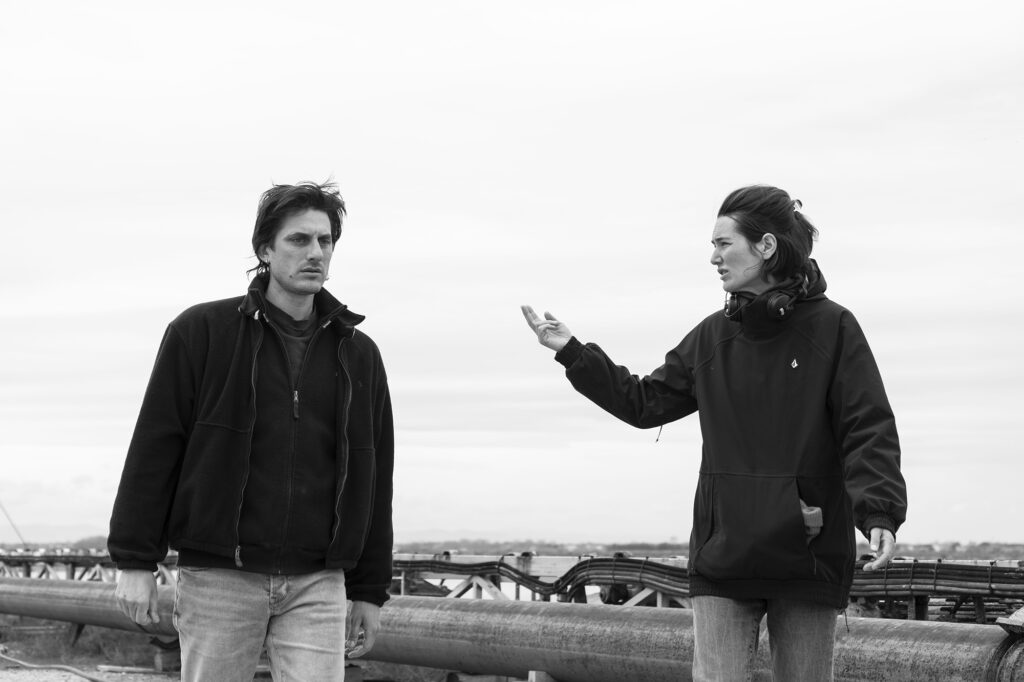
Yeah. So it was important to you that you worked with two leads who physically could embody what they were going through. Because I think that was a strong suit too, that I felt in everything that they did, whether they looked a certain way and walked a certain way, I felt their emotions.
Yeah. It was important for me. We had already chosen Luca to play Paolo. He is a super emotional, physical actor. It was clear to us that we needed an actress, a young actress, who can be on this level somehow.
We did a lot of castings, and then we found Juli. She never did anything before. She did a lot of callbacks as we were not sure because she had no experience, but in every callback, she learned something new. There was so much courage to go where it’s unstable and wobbly. She’s so honest as a person, but as well in acting because she would never say a word she’s not believing in. I could see that if we worked together, we could go where we went.
Then, I convinced everybody that we can. If we have one month of rehearsing, we will get where we want to go. That’s what we did. We did one month of rehearsing. We explored together the body language, and we explored together the anger for a woman and as well for a man.
We explored the physical scenes, how close can we get, and how it is to punch somebody. We developed, as well, similarities like how they walk or how they move at certain points. We worked a lot on body.
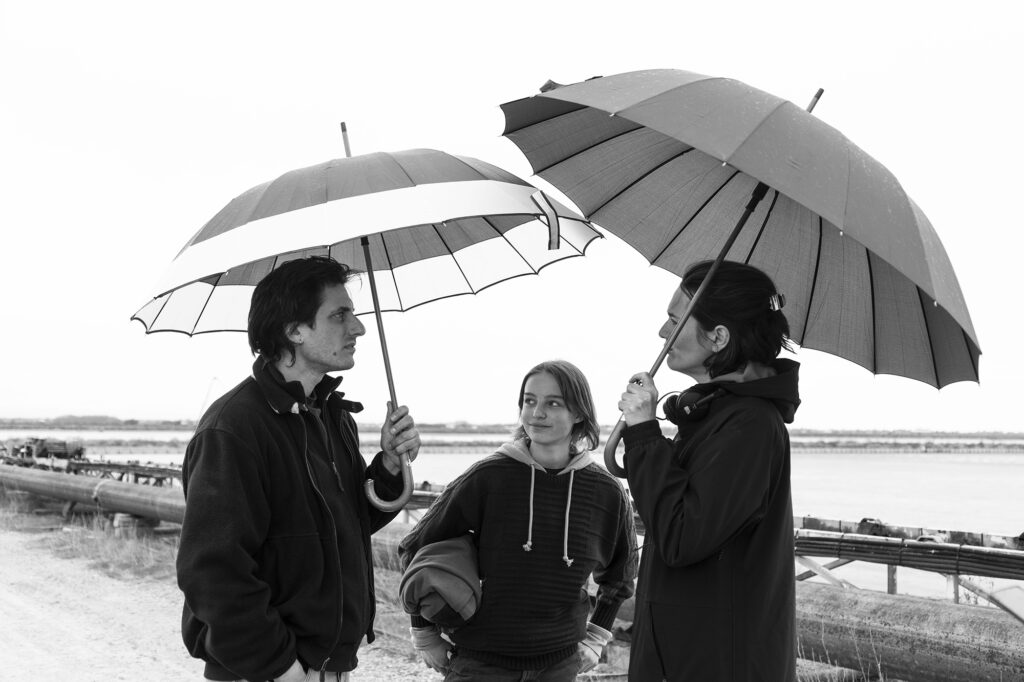
A bit of a personal question. Since this is your first feature and you chose to have your partner be the lead, was there any apprehension in people seeing this film as a unit instead of simply as your debut as a female director?
When I wrote the screenplay, I didn’t even know if I would ever shoot this movie, so I wasn’t thinking about actors. I just wrote the story.
Then, when it became quite clear that I was so in love with the screenplay that I couldn’t give it away, and I really wanted to do it on my own, Luca popped up in my mind. I was thinking it would be nice if he were Paolo, because he’s a great actor, no?
Objectively.
I thought he would be great to play this role because he has this ability of being multidimensional and of having this vibration in between good and bad somehow.
Then, I thought, well, the same question as you, “Is it right?” It would be my feature film. It’s my debut as a director. Is it right to do it with him who is way more famous than me?” Then, I was like, “Yeah, but just because he’s famous, if he’s the right person to do this, I would be stupid, no?”
I was like, “Put away all these thoughts.” Of course, people would think … of course there will be talking, but if he knows and I know that it’s right to do it, then it’s right.
He was quite professional. He was like, “Okay, I will read the screenplay. If I’m moved and I feel useful for the story, then I will do it, but if not, I will be very honest and I will say no.”
I had two hours of anxiety because I was afraid he would come out of the room saying, “Yes, it’s a nice screenplay, but I don’t feel that I have to be in it because I think I’m not useful for the story,” or something like this.
Then, he came out with tears, and he was really moved by the screenplay. He really wanted to do it, so we decided to do it. We talked a lot about how to work together, but in the end, it was super easy to work together because there’s a lot of trust. I think I know his work very well. I think I don’t know another actor’s work so well because I’ve seen all of his movies, so I knew, directing-wise, the way I want to go with him.
I think we have more or less a similar vision on acting, on cinema, on what we like in art. It was super easy to communicate and to work together.
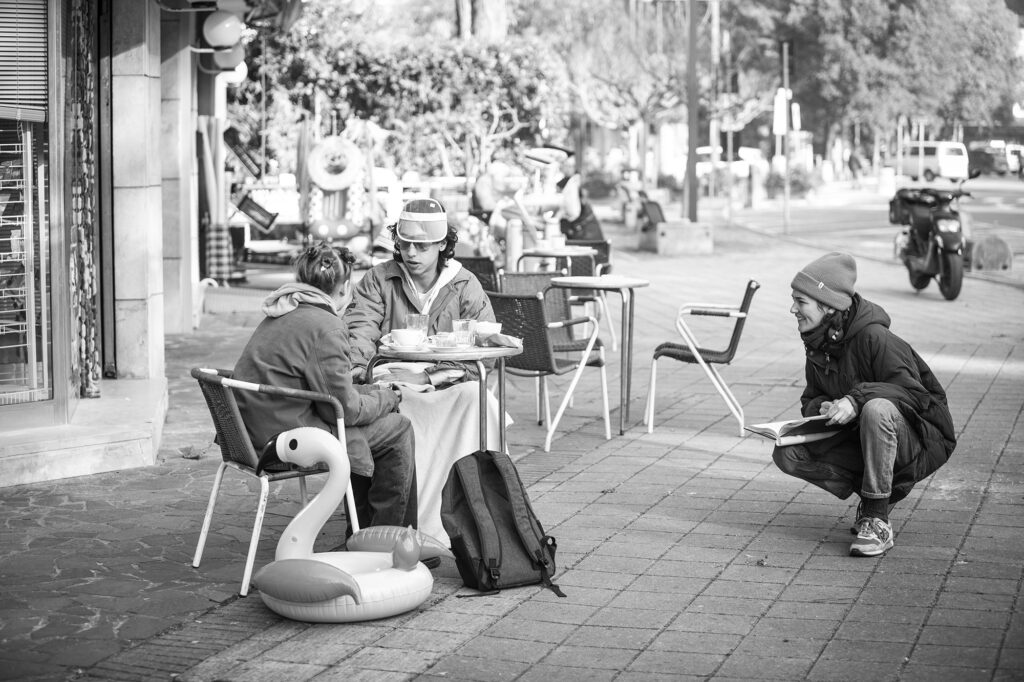
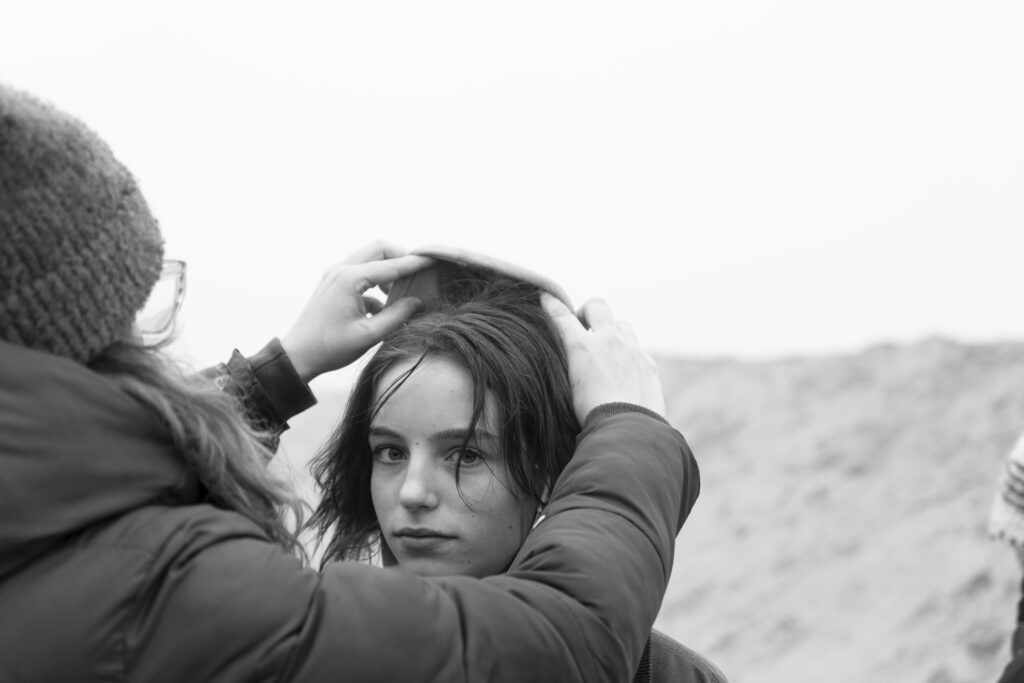
Yeah, that's so interesting. Also, my fear with filmmaking is the work-life balance. I fear that if you make a film you're kind of signing this unspoken social contract that puts everything else to the side. It must've been nice to know, okay, we're working on this together! It's killing two birds with one stone, sort of.
Yeah, this whole work-life balance in art is a bit crazy because, like you said, everybody’s expecting…if you are passionate about this, then it’s the number one in your life. I don’t think that’s right, because … It’s right to be passionate about your project…if not, don’t do it. But it’s not right to kill your private life. I have kids, I have a family, and there are people I want to see. I don’t want to disappear for one year out of their life. Yeah, but the thing I said in the beginning, I had to learn.
I appreciate that. Also, I read that you were a pediatrician?
Yes.
That's just amazing. The documentary I made is about the oldest practicing doctor in the world. I kind of felt guilty after spending four years with him because I was watching what he was doing on a daily basis, helping people at 102. I wondered if I was doing enough to help people. When I read that you took a break, I wanted to know why?
I think I was a bit tired of the film industry somehow because this industry, our whole society, but this industry specifically, puts you in a box. You’re not allowed to get out of this box. Once you’re in the box, you are this kind of person.
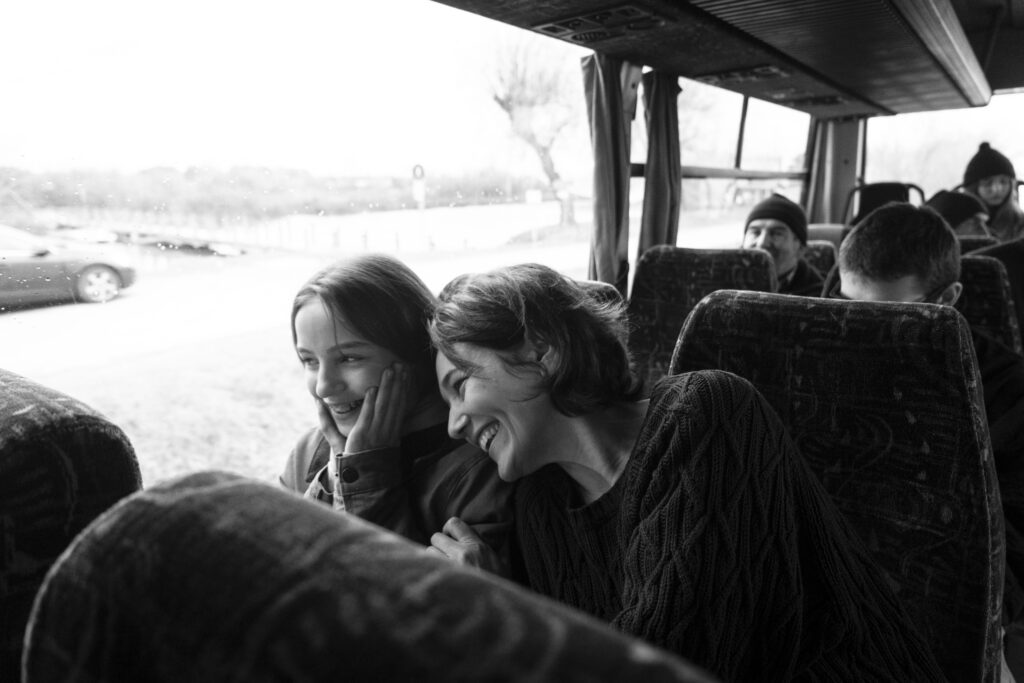
You have to stay there or you'll not move ahead.
I was really tired of staying in my box. I was like, “Okay, so if you don’t let me get out of this box, I will go.”
Because I studied medicine for a long time. Then I was like, “Okay, I will finish my studies now and I will become a doctor, and then goodbye.”
I worked for three years. I think it’s a wonderful dedication, more than a job. I was a pediatrician, so it was really, really nice to be in contact with so many beautiful children and so many stories. It’s beautiful. It’s really a human work, no? You are there with humans all day, but the medical system is a system which is totally sick. There’s no time to really be with the patient, and there’s no time to really care for the people.
It made me very sad to feel that I was doing what I could, but still it was never enough. Then, feeling on the other side that I really left half of my heart in the creative world. I felt that I had to go back because it was not resolved for me that I wasn’t there anymore.
I had to watch myself in the mirror like Paolo has to do. I was talking very honestly with myself saying, “Okay, is this really what you want to do in your life, being a doctor, or is it something else?” I was like, “No, it’s something else. I want to direct,” so I quit.
For six years I’ve been directing. I also made two shorts and I wrote two screenplays.
I appreciate everything that you're saying. The humanity in medicine is gone. The collegiality around it is just gone too. You don't feel like you can contribute enough to a system because even if you go above and beyond…the system wasn’t created for that. Also, I understand these different parts of yourself that are putting up a good fight, where you had a need to do that for a certain amount of time. What would this film have been if you didn't have that experience, I wonder? Because so much of what your film brings to me is just this kindness towards the coming-of-age experience. Maybe if you didn't spend that time with those children, this wouldn't be the film that it was.
Yeah. No, no. I’m super grateful. Because I feel that I learned a lot, and I can maybe now distribute in telling stories. Even in my shorts, I told stories about kids I met, in some way, and maybe this is, for now, my job, and then we will see.
What's after this? What's going on? Just figuring it all out?
Yeah. I’m looking forward to going into my room and closing the door, and starting to write again. I need to after being at all these festivals. Of course, I would love to direct my second, but we will see.
You need a new stimulus, right?
Yeah, and I need…just time. Yes. A reset. With myself.
* This interview has been edited and condensed for clarity.
Open Roads: New Italian Cinema is the only screening series to offer North American audiences a diverse and extensive lineup of contemporary Italian films. This year’s edition unveils a broad and diverse selection of Italy’s most exciting films, all North American, U.S., or New York premieres, with appearances and discussions by several of the filmmakers.
Special thank you to Sally Fischer Public Relations for arranging this interview.
CONNECT with NOIAFT:
Become a MEMBER: https://noiaft.org/register
Follow NOIAFT on INSTAGRAM: https://www.instagram.com/noiaft/
Like NOIAFT on FACEBOOK: https://www.facebook.com/noiaft
SUBSCRIBE to our YouTube for more exclusive NOIAFT content: https://www.youtube.com/@noiaft6651
About NOIAFT: The National Organization of Italian Americans in Film and Television (NOIAFT) aims to connect and empower Italian Americans to achieve their artistic goals.
